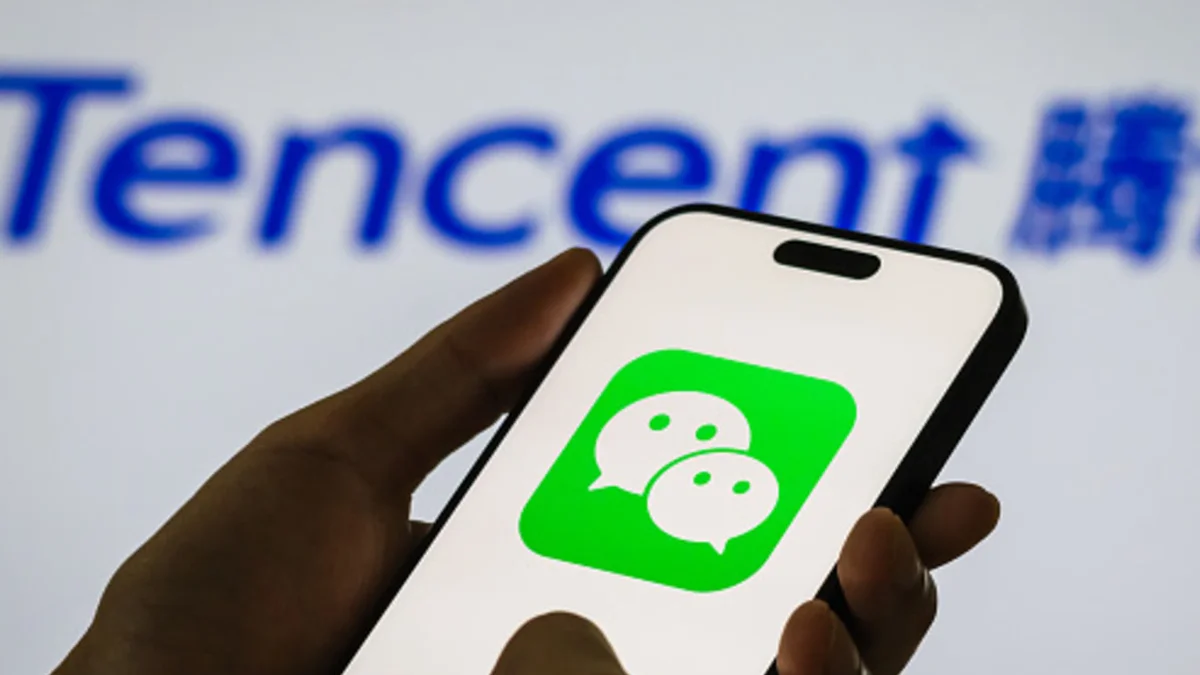Necessary Always Active
Necessary cookies are required to enable the basic features of this site, such as providing secure log-in or adjusting your consent preferences. These cookies do not store any personally identifiable data.
|
||||||
|
||||||
|
||||||
|

Tencent wants to take its cloud computing expertise to Europe, CNBC has reported. The Chinese tech giant has spent years growing its social media and gaming businesses and has built enormous cloud computing capabilities in the process. Tencent Cloud’s expansion to Europe is part of its wider overseas growth strategy.
Tencent Cloud highlighted the growing preference for connected platforms and multi-cloud strategies among enterprises during the Viva Technology 2025 event. According to the tech giant, this shift presents a unique opportunity to drive sustainable innovation and unlock AI potential.
Tencent Cloud also emphasized that the future of AI technologies involves advancing beyond scale. This means deepening integration of the technology into industries and daily lives, and ultimately transforming how enterprises operate. European enterprises should be able to adopt a system approach to stay competitive.
“The next phase of AI promises more than just operational efficiency. To unlock its full potential and remain globally competitive, European enterprises must adopt an ecosystem-driven approach. By drawing on deep ecosystem expertise, businesses can accelerate time-to-value, deploying and building AI components from customer service agents and knowledge engines to industry-specific AI solutions,” Dowson Tong, Senior Executive VP at Tencent and CEO of Cloud & Smart Industries Group, said.
Tong added that a multi-cloud strategy is critical in facilitating scalable innovations that provide efficiency and security.
Tong highlighted his company’s expertise and the unique capabilities that Tencent’s cloud services will be offering EU enterprises.
Speaking to CNBC, Tong said, “We have strengths and competence in very specific technology areas, as well as industry verticals. These are very unique technology capabilities that have been developed over many years and started from our products in China. So we intend to bring a lot of this technology expertise to Europe. We’re talking to a lot of interested potential customers.”
Tencent Cloud’s European push will see the Chinese company take on American cloud computing big techs like Google, Microsoft, and Amazon. Collectively, these three hyperscalers dominate 70% of the cloud market in Europe. Tencent plans to differentiate itself in this market by focusing on areas where it has developed unique capabilities.
According to Tong, these areas include cloud technologies that support gaming, optimize video streaming, and facilitate the development and hosting of super cloud apps like China’s largest messaging service, WeChat. Super apps are applications that support multiple functions like payments and messaging.
The Tencent VP highlighted the cloud computing work that his company is already doing with Orange, a French telco. The Chinese big tech is supporting the telco with its Max it app in the African continent.
Tencent plans to leverage its gaming expertise in the European market by using its cloud technology to improve latency. The company is also counting on the fact that EU enterprises would want to interoperate by taking up multiple cloud service providers, instead of depending on one of the big players.
“That’s actually a deliberate strategy of ours to make the customers feel more comfortable using our technology, especially in a multi-cloud environment,” Tong added.
Tencent is also looking to bring its foundational AI model, Hunyuan to Europe. The company also uses models developed by DeepSeek in its products. Like other cloud computing giants that focus on selling AI tools to differentiate their products and increase revenue, Tencent plans to do the same in Europe. The company hopes to offer products built on EU models in the region.
“Our focus would be providing tools that would work with different foundation models and ultimately, it’s the customer’s decision which model works best for them. So I think at the end of the day, we would always go to our customers, find the problems they wanted addressed, provide them tools so that they can accomplish what they need, and realise the cost efficiency that we can offer,” Tong said.